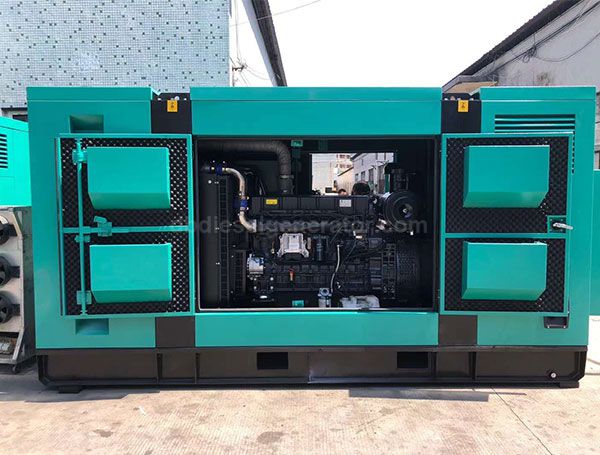How quiet is a silent diesel generator?
A "silent" diesel generator is designed to minimize noise emissions and create a quieter operating environment compared to traditional diesel generators. However, it's important to note that while "silent" generators are quieter than regular ones, they are not completely noiseless. The noise level of a silent diesel generator can vary based on factors such as the generator's size, design, insulation, engine technology, and the load it's carrying. Here's a general overview of what you can expect in terms of noise levels from a silent diesel generator:
1. Decibel Levels: The noise produced by a silent diesel generator is usually measured in decibels (dB). A silent diesel generator typically operates at noise levels ranging from around 50 to 80 dB, depending on its size and load. To put this into context, normal conversation at a close distance might be around 60 dB, while a vacuum cleaner operates at about 70-75 dB.
2. Size Matters: The size and power output of the generator can significantly impact its noise level. Smaller generators generally produce less noise, while larger generators might have a slightly higher noise output due to their larger engines and higher power capacity.
3. Engine and Technology: Modern diesel generators often come equipped with advanced noise-reducing technologies such as soundproof enclosures, mufflers, and vibration dampening systems. These features help minimize the noise generated by the engine and other mechanical components.
4. Enclosure and Insulation: Silent diesel generators are often housed in soundproof enclosures that are designed to contain and reduce noise. These enclosures are typically made from materials that absorb and dampen sound waves, contributing to a quieter operation.

5. Load Impact: The noise level of a generator can vary based on the load it's carrying. Generators operating at lower loads tend to produce less noise compared to when they're operating at maximum capacity.
6. Environmental Factors: Environmental conditions can affect the perception of generator noise. For instance, noise might seem more noticeable in a quiet suburban neighborhood compared to an industrial area with ambient noise.
7. Regulations and Standards: Different regions and industries might have regulations or standards that dictate the allowable noise levels for generators. Silent diesel generators are often designed to meet or exceed these standards to ensure they are suitable for various environments.
8. Maintenance and Age: Regular maintenance and upkeep can contribute to a quieter generator operation. As generators age and components wear out, they might produce more noise. Proper maintenance can help keep noise levels in check.
9. Distance Matters: The distance between the generator and the listener also affects perceived noise levels. As you move farther away from the generator, the noise will decrease.
In summary, a silent diesel generator is designed to operate at lower noise levels compared to conventional generators. While they are not completely silent, they offer a significant reduction in noise emissions, making them suitable for environments where noise pollution is a concern. When considering a silent diesel generator, it's essential to review the manufacturer's specifications for noise levels and choose a model that aligns with your noise sensitivity requirements.


